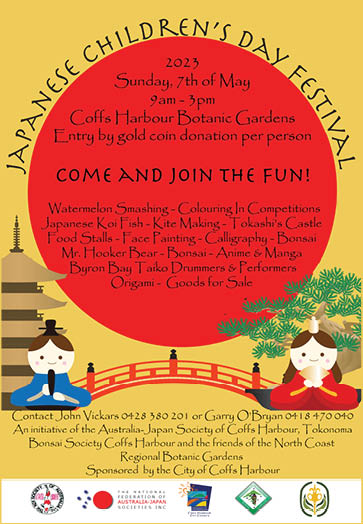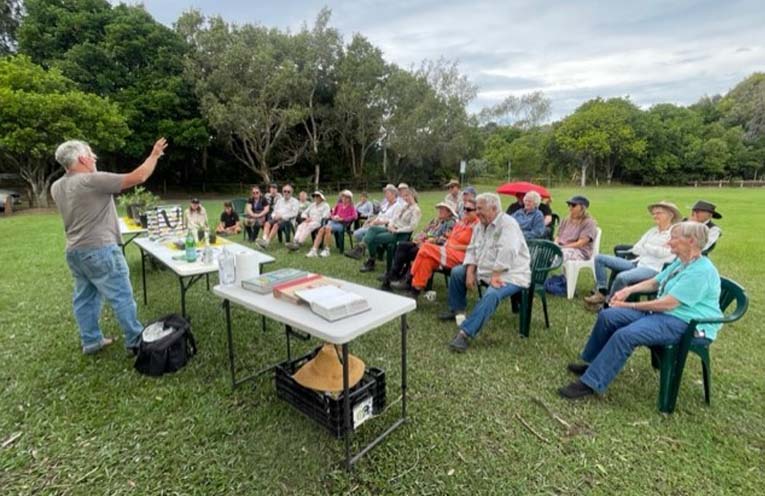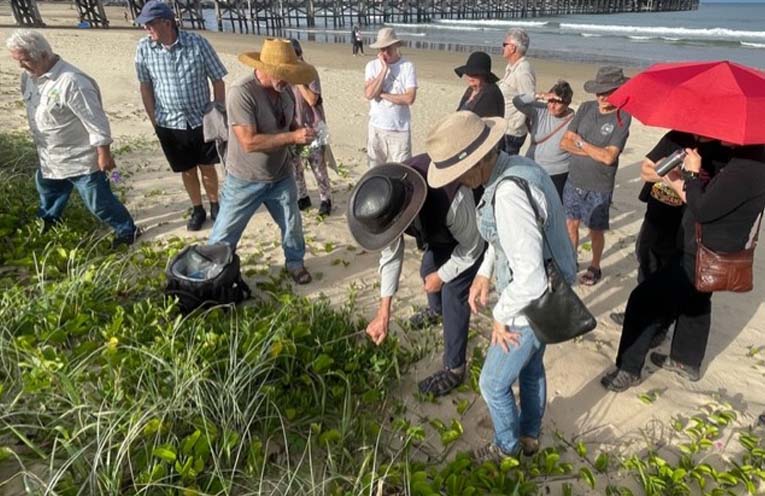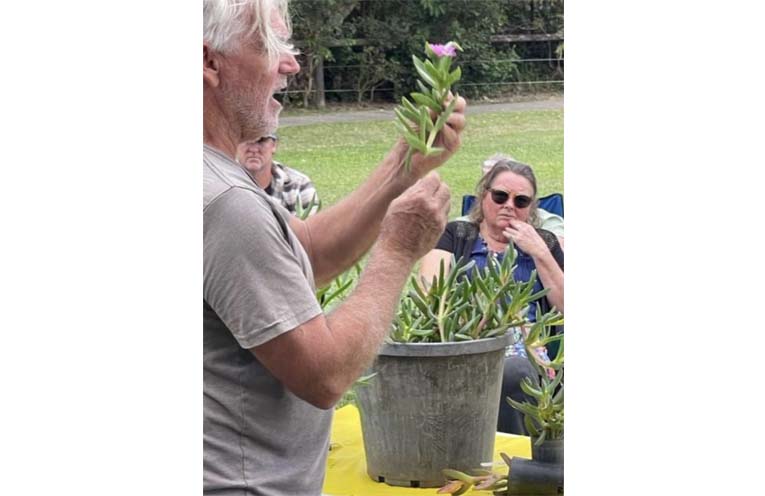
JETTY Dunecare members celebrated winning Coffs Harbour Regional Landcare’s (CHRL) Dee Wallace Memorial Award 2022 for 40 years of diligent work on their extensive patch of Coffs coastline with an Open Day on Saturday 29 April.
Held adjacent to Jetty Dunecare’s shed at the Jetty Foreshores, the celebrations included guest speaker Peter Hardwick, a bush food specialist and native plant enthusiast, who presented a special workshop aimed at raising awareness of the threat of Carpobrotus genus, commonly known as ‘pigface’.
 Advertise with News of The Area today.
Advertise with News of The Area today.It’s worth it for your business.
Message us.
Phone us – (02) 4981 8882.
Email us – media@newsofthearea.com.au
CHRL members and representatives from local plant nurseries, National Parks and Wildlife Service (NPWS) and City of Coffs Harbour, attended the workshop where some valuable conversations were had about how to tackle this problem before it becomes a major issue along our coastline.
Jetty Dunecare President Desnee McCosker told News Of The Area, “The group was also treated to a lovely wander around the site to explore the achievements of Jetty Dunecare, as well as some of the challenges they face working in one of Coffs Harbour’s most popular coastal sites.”
Jetty Dunecare has been working tirelessly for 40 years to restore and regenerate natural vegetation along the Jetty foreshores, ensuring valuable habitat for coastal wildlife, as well as beautifying and strengthening the dunes against erosion.
Recently, however, they were alerted to a potential new threat along our coastline in the form of a vigorous, introduced species of groundcover in the Carpobrotus genus (pigface).
“Non-native Carpobrotus species are planted extensively in amenity horticulture and private gardens, and are sold in retail nursery outlets.
“These plants present a potential competition and hybridisation risk to the native species of pigface (Carpobrotus glaucescens), which grows naturally on coastal sand dunes and headlands of Eastern Australia.
“It plays an important role in coastal ecosystems, especially in dune stabilisation, and is a food plant of cultural significance to First Nations peoples,” shared Desnee.
After the gathering, Peter Hardwick commented, “Today we had a Welcome to Country from Aunty Cynthia Kelly, a Gumbaynggirr elder, for the Jetty Dunecare and Coffs Harbour Regional Landcare presentation on native pigface conservation.
“This was especially appropriate because native pigface has been a traditional native food of Gumbaynggirr people for thousands of years.
“It’s great to see that many people are very concerned about the native pigface being put at risk from the weediness of ornamental pigface.
“Basically, the non-native pigface are weeds in the making.
“Many of these ornamental pigfaces have what’s called ‘hybrid vigour’, which makes them more weedy.
“In California and Southern Europe they are describing ‘hybrid swarms’ of weedy pigface that grow so vigorously that they are smothering their coastlines.
“We don’t want that here.
“It’s not necessary to grow the introduced ornamental types of pigface because the local native pigface is easy to propagate and can be grown in nurseries and used instead of the non-native weedy types of pigface.
“Other issues discussed at the workshop included how to identify the difference between the native pigface and the hybrid ornamental varieties and how to move forward with getting nurseries, local and state government agencies on-board to do more about preventing the planting of the weedy non-native Carpobrotus,” said Peter.
While exploring the dunes in the search for native pig face, Desnee said it was extremely disappointing to discover the pigface planted all around the top of the new building at the TS Vendetta site.
CHRL thanked Peter Hardwick for sharing his knowledge and enthusiasm on the pigface issue, Cynthia Kelly for welcoming the gathering to her Country, and everyone who took the time to attend the event.
Most of all, CHRL extends gratitude to Jetty Dunecare volunteers for all the hard work they continue to do caring so beautifully for our coast.
See the Coffs Harbour Regional Landcare website for more information.
By Andrea FERRARI



